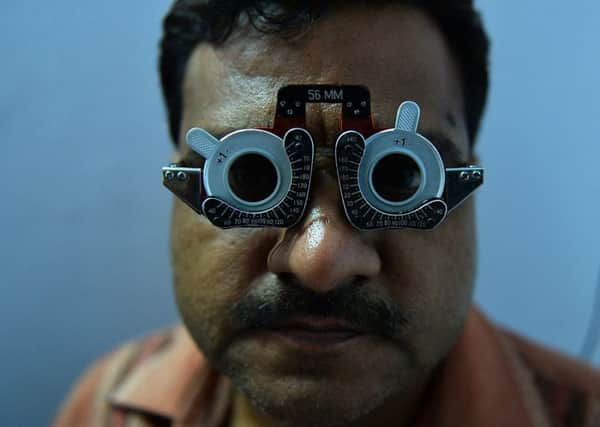Scottish optical device pioneer Epipole eyes global growth


Epipole is located at Rosyth Europarc and was set up in 2011 by Craig Robertson, formerly of Dunfermline-based Optos, which created the world’s first wide-field eye scanner and was taken over by Nikon in 2015.
Robertson said the aim of Epipole from the outset was to create relatively affordable equipment, and having taken on a fellow former Optos colleague, optical engineer Bob Henderson, it has developed what it says is the world’s first retinal video camera.
Advertisement
Hide AdAdvertisement
Hide AdThe business is rolling out its core technology globally, and its offering comprises a portable camera known as EpiCam that images the retina at high resolution, allowing early diagnosis and monitoring of diseases such as diabetic retinopathy. It is targeted at the developing world, where the illness is a major cause of preventable blindness.
Robertson said the aim at launch was developing it where diabetes was most prevalent, describing this as an “arc” from the west coast of Africa up to India and China.
India is the world’s diabetes capital and the condition is forecast to affect 80 million people there by 2025. “We know that around 10 per cent of them will have some kind of eye problem,” Robertson said.
Epipole has also developed a version of its EpiCam for premature babies to treat retinopathy of prematurity, which caused US musician Stevie Wonder’s blindness. Robertson said ROP is a key priority for Epipole, and its device costs about 5 per cent of the competition’s, “so it’s properly disruptive”.
The firm also has a device for animals and has signed a contract with global veterinary distributor Eickemeyer.
Robertson expects Epipole’s total distributors to reach 20 by the end of this year and 50 by the end of next, by which time he expects its staff to have grown to 12 from seven currently.
It has devices at the Princess Alexandra Eye Pavilion in Edinburgh and Great Ormond Street Hospital in London, while its research and development partners include the NHS in Fife and Tayside and the School of Medicine at the University of St Andrews.
The focus is now on driving each of the products, with work under way on other “secret devices” targeted at conditions including glaucoma.
Advertisement
Hide AdAdvertisement
Hide AdFunding came from Glasgow-based early-stage equity investment fund Lancaster Capital, with a record £150,000 award from Scottish Edge in late 2015. Robertson added: “We’ve got to scale and we’ve got to scale quickly.”